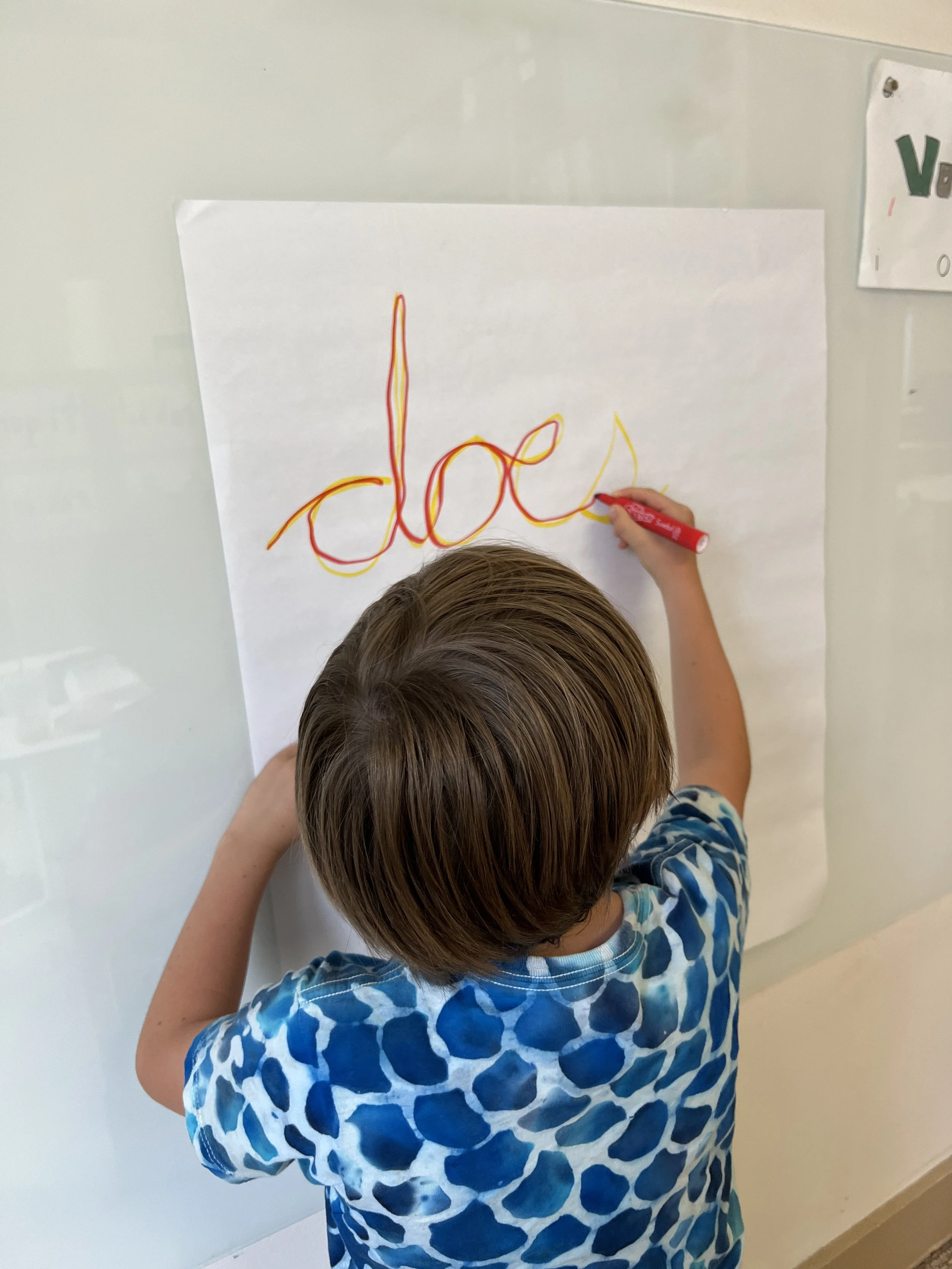Phonological Awareness
-
Phonological Awareness is an umbrella term that encompasses the individual’s ability to recognize the ways that oral language can be broken into units and manipulated. Research has shown this skill to be an important part of reading development.
-
Activities in tutoring that address this skill may include rhyming, breaking sentences into words, and words into syllables and phonemes (individual sounds). These activities are often multisensory.
Decoding
-
Decoding is the action of sounding out words accurately.
-
In tutoring sessions, decoding consists of instruction on specific phonemes (sounds) and their spellings followed by practice reading words and sentences that contain them.
Encoding
-
Encoding is also known as spelling. It is the process of translating sounds into written letters.
-
Encoding in tutoring sessions consists of spelling words, phrases and sentences that include a targeted phoneme (sound).
Comprehension
-
Comprehension is an individual’s ability to understand and use information that they are given. We work primarily on reading comprehension in tutoring.
-
Reading comprehension activities can include activities where students are asked to discuss what they read, summarize what they have read, draw a picture of a story element, and more!
Fluency
-
Fluency is the ability to read at an appropriate pace, accurately and with expression.
-
Fluency practice can include repeated readings of controlled text, fluency pyramids, reading articles and trade books out loud.
Morphology
-
A morpheme is the smallest unit of language that holds meaning. Morphology is the study of morphemes and the way that these meaningful parts fit together.
-
In tutoring sessions, morphology practice includes instruction and review of the most common affixes, their meaning and usage.
Handwriting
-
Handwriting includes pencil grip, proper letter formation, and fluency of writing.
-
Handwriting instruction can be in print or cursive. We teach handwriting explicitly using programs like Handwriting Without Tears and Savvas D’Nealian Handwriting.
Alphabetic Knowledge
-
Students learn to identify, name and write letters. This is a pre-reading skill usually mastered in pre-k.
-
Tutors work with students on the alphabetic principal by teaching letter-sound relationships explicitly and in isolaton, providing repeated practice with matching sounds and letters, matching lower and uppercase letters, and writing letters.
Print Awareness
-
The awareness that print conveys meaning and the way that it is organized on a page.
-
Tutors use read alouds to demonstrate print awareness and directionality of text.









